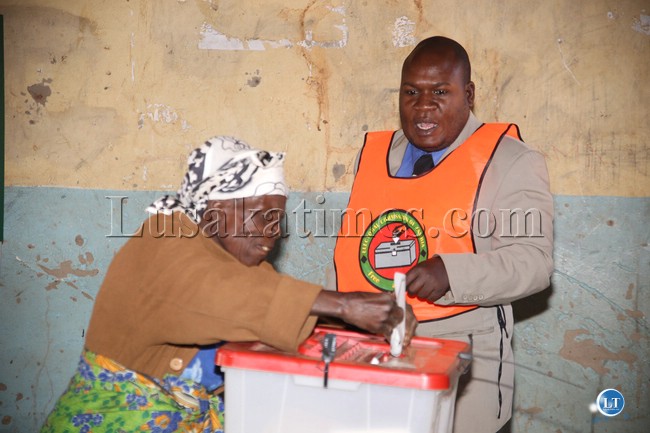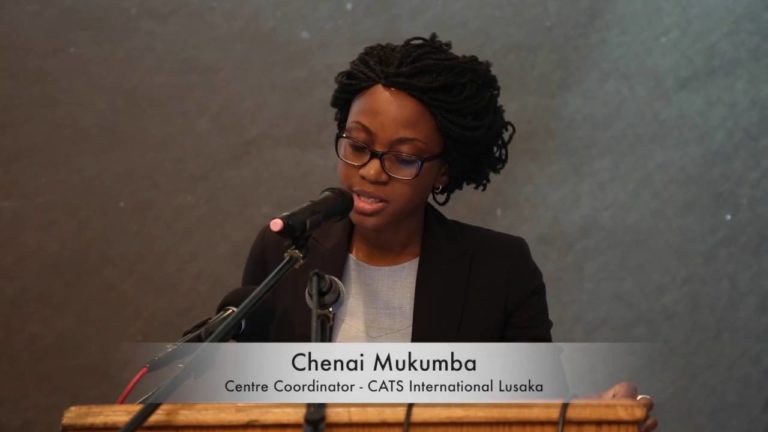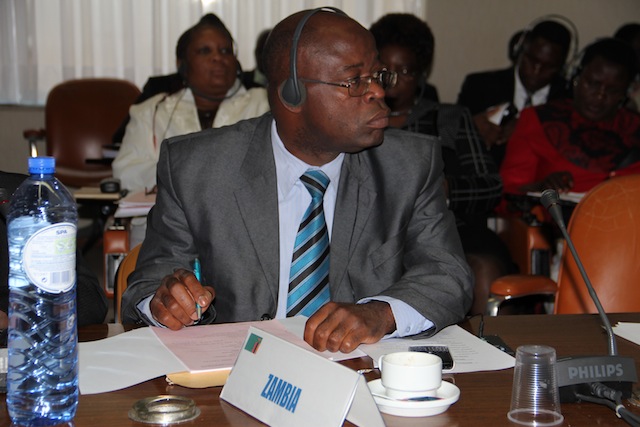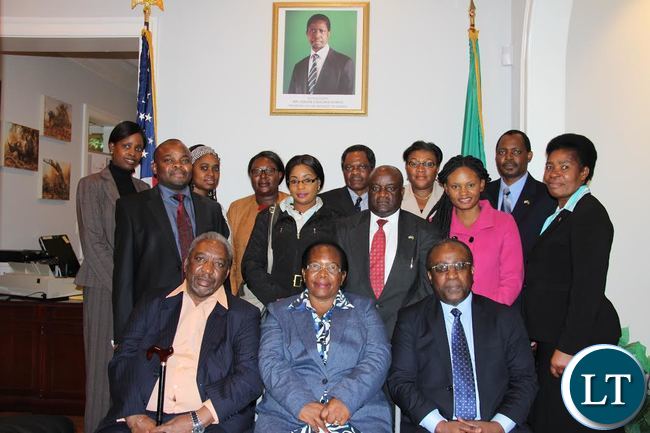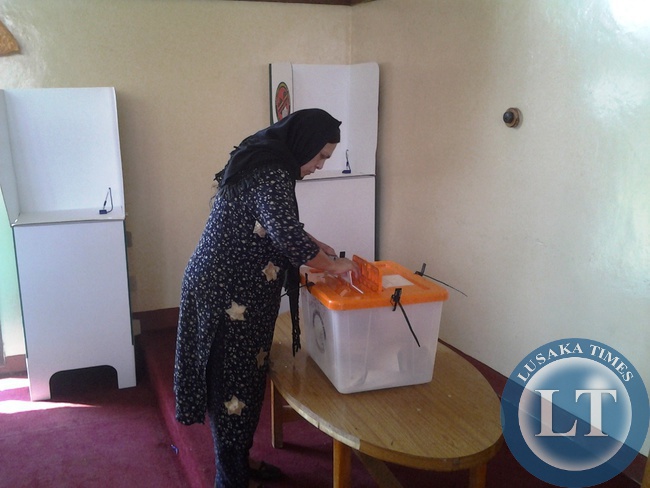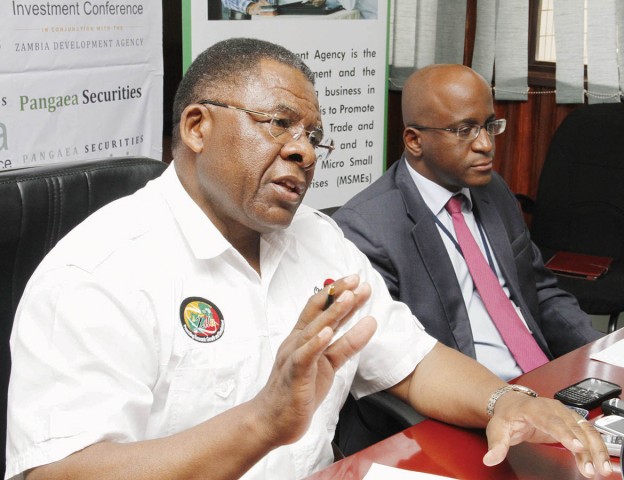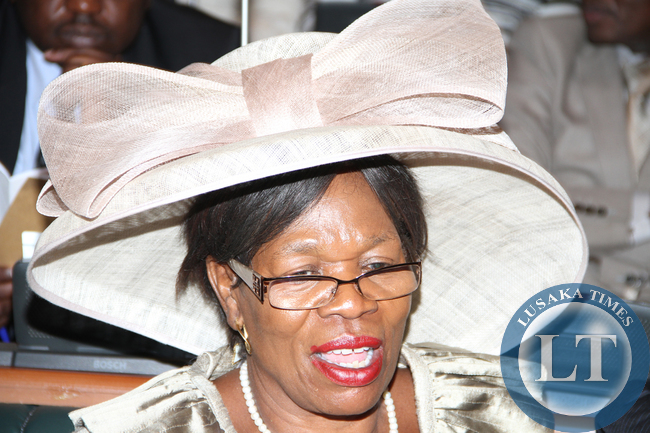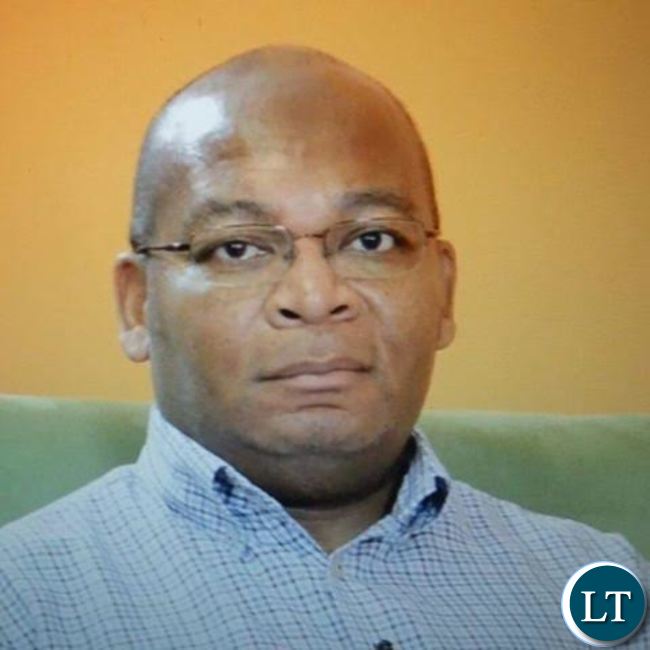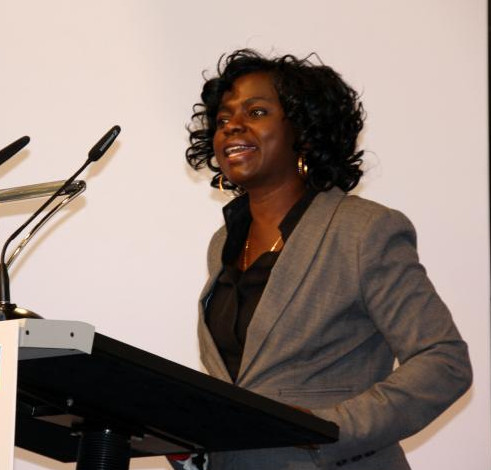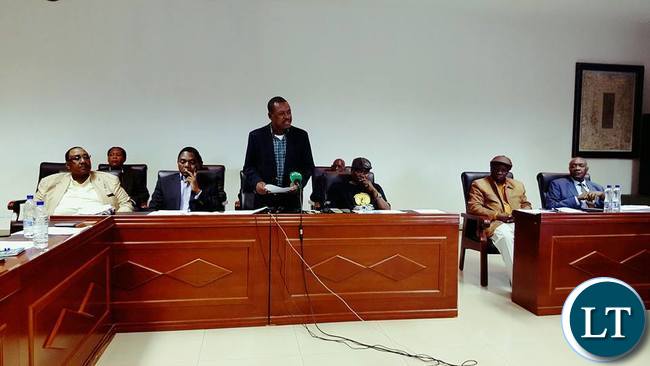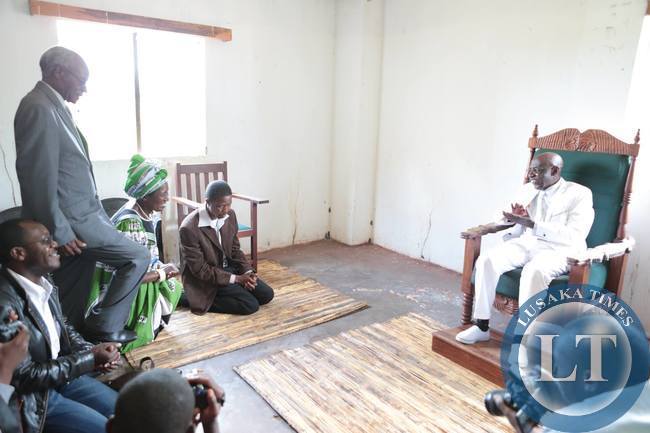
By Henry Kanyanta Sosala
Preamble
It’s the vulnerability of chiefs to politicians or that chiefs are at the mercy of people with political power is what strongly and continuously comes to my mind and is one great lesson I learned during the two years period that Bashilubemba stood firmly and resisted President Sata’s miscalculated attempt to destroy the entire chieftaincy in Zambia.
In his paper: ‘’Hunt For Successor 39: Ivory-tower Intellectuals, Field Ruwe wrote:
‘’The power of politics in Zambia have always prevailed over the power of thought and turned intellectuals into ivory-towers. A politician with little or no education is mightier than an intellectual with roof-level university degrees. He can humiliate him; frustrate him; turn him into a pauper; throw him into the gallows; drive him out of the country; or lead him to his demise.’’
In the 1980s when I was re-converted to Christianity after twenty years of being a practicing Marxist and a committed atheist, an American evangelist, Rev. Bernard Jordan wrote to me:
‘’The holy Spirit revealed to me that you do not do things just to get along with people. In fact your inner confidence is what separated you and placed you on another level. You have always been able to think outside the box. Your mind is not limited by what you see. And when it comes to picking the party favourite, you cannot win that nomination. Henry Kanyanta, when challenges show up in your life, you refuse to panic. Instead you choose to stand on your faith. What makes you an overcomer that you are and the champion that you have become is the anointing. You are anointed to walk through fire and the storm and come out better in the end. You are not defined by the lies of the enemy or the opinions of others.’’
At the beginning of the year 2016, which marked one year of my being gazetted and officially ascendancy to the most senior traditional seat of Bemba power and as my usual practice every beginning of each new year, I decided to spend two days in reflection on my new position. Dr. Audrey Richards wrote in Political System of the Bemba Tribe:
‘’Authority, power and prerogatives depend upon descent and kinship and all branches of the royal clan can claim connection with the original family of which a traditional Chitimukulu was head. The Chitimukulu is the oldest name of a royal chief. It is the name carried by the most senior members of the crocodile totem and as such it demands the most respect. The sway of the Chitimukulu is as much moral and spiritual as temporal. His temporal power too is the greatest of the chiefs. He lives in and rules Ulubemba, the stronghold of the tribe and all appointments of chiefs to help him hold the widening sphere of Bemba rule comes from him.’’
Pittacus wrote,
‘’The measure of a man is what he does with power.’’
Every team needs a leader who is not afraid of the moment; someone that has the ‘’it’’ factor and is willing to take on the responsibility of making difficult decisions. I have learned that passion and conviction mark the difference between a great leader and a mediocre one!
What then does the position of Paramount chief Chitimukulu of the Bemba people mean to me? Is there something more beyond the throne? What am I expected to offer to the people and my subordinate chiefs? Is there any precedence from the past that can help me chart a way forward as to the responsibilities of Mwinelubemba since I had all along believed that the Bemba desperately needed a leader who could provide a strategy for success? Is it safe to bury my head in the daily routine of trying to solve people’s minor issues like witchcraft? Am I to be a revolving door for politicians and their various issues? Am I to continue wasting time in daily denying that I belong to neither the ruling nor the opposition party since distraction is the enemy of direction? Are these political gymnastics not meant to sabotage the effectiveness of my leadership? Security provides the foundation for strong leadership. Is it then not possible that such deliberate maneuvers by narrow-minded politicians and third-rate newspaper reporters are meant to create insecurity of my leadership? The truth is that politics without principles is a disaster. What is it that a Chitimukulu should really be doing?
In Chibemba we say: ‘
’Uwaleta pa bwingi tonaula,’’
meaning ‘’ Consulting leads to right decisions’’. And in order to get the general and various opinions, I eventually wrote in one my articles about my concerns and asked the bloggers what ‘’my role as Mwinelubemba Chitimukulu should be in a modern democratic society.’’
And as usual since our so-called ‘’intellectuals’’ only become clever after events and can never originate anything. And it’s likely I am going to receive a lot of useless rigmarole from bloggers after reading this article. I only received one reply from my dear young man with whom we share a lot of contradictory and thorny issues as free-thinkers. Sishuwa Sishuwa is currently studying at Oxford University in Britain and here is what he said:
‘’Dear Mwinelubemba,
What you ask is an authentic and fundamental question, especially for one who is at the centre of power such as yourself and a community leader who won a lot of national respect in a very noble way. It speaks to the tension within oneself, to kind of a big inner turmoil, which requires ontological security to create a new direction. How do you, for instance, reconcile your background as a free thinking, cerebral, broad-minded, conscious actor with cultivated tastes such as attempting the role of an academic historian seeking to clarify heritage, lineage, origin and evolution against your traditional part as a chief who is constrained by custom and regents? How do you navigate the tension between achieving self-sustenance status and the paternalistic relationship with the centre (or those that aspire to it) whose benefactors preserve laws that seek to permanently thwart your freedom and advance their (political) interests, and even come to you – be it in time of adversity or when the storm is over – precisely in furtherance of these essentially personal objectives? How does a traditional leader with your history navigate the relationship between politics and relationships?
‘’Whatever is revealed to you in the end, I hope it is ultimately national in character because what is at stake is holding the country together. We are not yet a nation, Mwinelubemba. We are just a collection of ethnic groups lumped together by a limitation of colonialism and the accident of history. Our fundamental problem is that we have a state without a nation. In other words, our state building is contracted by the failure to create the core pillars of a national entity. How do you see your role here? It seems to me that the educated chief, placed in this context, is confronted with the question of whether to preserve the status quo or become a nationalist way above his traditional leadership role. If the chief chooses to become the latter, he or she may have to change custom or strengthen it and be prepared to ride against the possible consequences that result from the ire of a nation-less state that resists such changes. What’s your greatest regret so far? And what will you set out to achieve or change before you die?’’
The Bemba People’s Historical Background.
I believe that the manner in which different societies came under European rule is of crucial importance to their political, cultural or economic directions, both during and after the colonial rule. It is therefore of vital importance to understand the actions and reactions of both the European empire-builders and the tribal societies regarding the intrusion.
The Bemba saw European intrusion in general as a threat to their way of life which was largely based on conquest and plunder, ( to which some anthropologists referred to as ‘’cultivation by spear.’’ The Law of Generation states:
‘’We are all linked to previous generations behind us. Our ancestors are in our genes, in our bones, in our marrow, in our physiological and emotion-make-up. We, in turn, will be written into the children who come after us.’’
This means, ‘’who we are, is who we were.’’ The Bemba are from the warrior stock. The shaping power of that heritage has continually been working upon us all and that heritage has been influencing us in certain values, behavior patterns etc. For example, in the life of a genuine Bemba (umu Bemba inkonko), reckless daring is held to be royal courage; prudent delay is the excuse of a coward; moderation is the disguise of unmanly weakness; the lover of violence is always to be trusted. These are supported by such a proverb, ‘’Amala ya mwaume yashala ku cishiki.’’ i.e., a man should fight to the last atom of his power.
And in this respect in the 1930s, a social anthropologist, Dr. Audrey Richards wrote: ‘’…..
among the highly paid employees on the more dangerous underground work at Wankie coal-mine, Bemba-speaking natives are in predominance… whether this is an innate temperament trait or it is a habit of mind dependent on strong warrior tradition, it is impossible to say.’’
And she went to say that at Luanshya mine, it was found necessary for the Bemba wives to draw their rations in a separate queue in order to avoid disputes with women of other tribes who were willing to receive rations which were even below the mine management’s specific standards.
The analysis of the Bemba People’s Economic Challenges.
The European reaction to the Bemba was total rejection, which was based on intelligence reports gathered by missionaries and passed on to the colonialists (Andrew Roberts in A History of the Bemba p. 288). And Madam Eileen Bigland in The Lake of Royal Crocodiles pp 106-9).
And as a result, the Bemba people were totally rejected by the colonialists and on the underdevelopment of Ulubemba, Andrew Roberts wrote:
‘’Colonial rule brought far-reaching economic and social changes which were not, for the most part, to the advantage to the Bemba as a group. But for this reason, it was of great importance that their pre-colonial system of chieftaincy should have been preserved. And amid the upheavals of the twentieth century, the Bemba have retained a sense of corporate continuity and communal pride through the survival of their political structure, a living testimony to their imperial past.’’
And so during the colonial era, Ulubemba, unlike other parts of the country did not enjoy what could be called ‘’oscillating equilibrium’’ between the government holding together a number of small partners. And indeed records clearly show that the colonial administration kept on frustrating the economic development and the initiative of the Bemba people.
For example, whilst the government in the 1940s talked of development for Northern Province (NAZ: Sec 2/264: Native Market, Northern Province). However, in practice its only real intervention was to prohibit at various times the export of food from the province with a view of securing sufficient cheap food for government use within the province. The peasant farmers meanwhile protested from time to time over what they felt were artificial low official prices and sometimes withheld their crops. (NAZ: Sec 5/183: Food Supplies, Northern Province 1949-51).
It was the exodus to the copper-belt and other urban areas that saved the tribe from the trap of total illiteracy, but unfortunately not from economic doom. The statistics compiled in 1935, by Dr. Mitchell of the workers on the mines and related industries showed the Bemba toppling the list at 26.5 per cent.
And in Lusaka, Mrs. Betty Thomas, in a nutrition survey of 1947 wrote that the most numerous tribes were found to be Bemba, Lenje, Chewa, Ngoni and Soli (Two Studies in African Nutrition: Rhodes Paper No. 24).
Inspite of the fact that the male population of Ulubemba had migrated to look for jobs elsewhere due to lack of development and what remained was the struggle by women in the absence of male labour and yet, the Government report for Native Affairs of 1936 stated:
‘’Natives in this Province generally speaking strikes one as singularly and indeed downright lazy about the growing of foodstuffs.’’
The Bemba people are still victims of negative reports. For example, Henrietta Moore and Megan Vaughan who carried out a research in Northern Province in the 1990s, observed that rural peasants have a bleeding and native intelligence to make enlightened decisions on development which was contrary to the views of our current local Bemba-hating professionals.
‘’What we are examining, then, are the effects of labour migration on the ability of households to feed themselves. Though recent agents of development in the region often assume that they are working with the people who have never experienced an agricultural innovation before, the history of the last fifty years teaches us that this is far from the truth.
‘’…..when we survey the subsequent history of the area, it is apparent that the agricultural system has been far from stagnant. It is not in general the story of the growth of a prosperous peasantry, such as have been told of other parts of Zambia and other parts of Africa (see Vickery 1986). Rather it is a story of the adjustments which people have made over time to their food production system in order to ensure their subsistence and in order to adapt to their absence of male labour.’’
(Planners and History: Negotiating ‘Development’ in Rural Zambia)
The book referred to was written by Kenneth Vickery titled Black and White in Southern Zambia: The Plateau Tonga and British Imperialism and it was based on a research carried out for the period between 1890- 1939. This is an example of smooth European intrusion among the Tonga people.
And of course, when the struggle for independence came about the Bemba in revenge fought to the best of their destructive abilities. And in 1961, there was an uprising master-minded by the late Mr. Lewis Changufu, code-named ‘’Chachacha’’ in Luapua and Northern Provinces in which legions of ordinary people, most of whom remain forever nameless in the pages of history who fought and lost their lives; were maimed by the security forces and imprisoned. And unfortunately nothing is being taught in our schools so that our youngsters should learn that independence did not come on a silver plate. The reason is just not to give credit to the Bemba heroes.
That was a very trying period because the white employers could not offer jobs to the Bemba-speaking: ‘’Ini lo mushobo kawena?’’ Meaning, ‘’What is your tribe?’’ If Bemba, the next thing was, ‘’Amba lapa Kaunda ena engeneza ena muzebezi.’’ And as a result, the Bemba became the nation’s laughing stock. And that was why Mr. Kapwepwe declared: ‘’We shall forgive, but never forget.’’
It is therefore the responsibility of Bemba chiefs to instill into the hearts and minds of our youngsters to uphold Bemba values and be ever ready to stand on guard for Bemba ‘’sovereignty’’ which is sacrosanct. They must never allow the Bemba transcendent revolutionary militancy to be quenched.
Y. Barel wrote: ‘’
One manages capital in order to increase it; one manages cultural heritage in order to pass it on, since it influences not only the economy, but a large area which includes family, politics, social consensus and conflict.’’
The undermining of the Bemba people’s economic development can clearly be seen on how the Bemba-speaking President Chiluba and his regime embarked on economic sabotaging Northern Province as can be seen from the 1993 budget:
| PROVINCE | POPULATION | DISTRICT | AMOUNT |
|---|---|---|---|
| Copperbelt | 1,657,646 | 10 | K21,513,924,775 |
| Southern | 1,302,660 | 11 | K21,021,062,835 |
| Eastern | 1,300,975 | 8 | K19,045,552,876 |
| Lusaka | 1,432,401 | 4 | K17,090,790,601 |
| Northern | 1,407,088 | 12 | K16,988,223,330 |
| Luapula | 784,613 | 7 | K16,897,513,861 |
| Western | 782,509 | 7 | K16,546,439,109 |
| North-western | 610,075 | 7 | K14,832,751,811 |
| Central | 1,006,776 | 6 | K13,973,930,361 |
Here, on the other hand are statistics showing the distribution of President Chiluba’s discretionary fund, which must be seen in relation to the above table:
| Province | Amount |
|---|---|
| Southern | K2,271,000,000 |
| Lusaka | K2,774,000,000 |
| Copperbelt | K1,952,000,000 |
| Luapula | K975,000,000 |
| Eastern | K903,000,000 |
| North-western | K731,000,000 |
| Western | K655,000,000 |
| Northern | K332,000,000 |
| Central | K283,000,000 |
Chiefs Have no Role in Rural Development
in the 1930s, Dr. A.I. Richards writing on The Chief’s Leadership in Economic Enterprises said: ‘’
I was amazed in fact to find how much of the conversation in a chief’s hut concerned the whole organization of the food-supply, the exact type of soil in such and such a place, or the methods successfully used on it. Comments and criticisms were passed freely…. There are two aspects of the chief’s functions as an organizer of the people: functions as an organizer of the people in his chiefdom. In the first place there are of activities he actually initiates and co-ordinates, and in the second, his direction of his labour sets the pace for agricultural enterprise and forms the basis of the whole economic system……Their knowledge of cultivating processes, soil selection and the best moment for planting is also considerable. Even the most stupid or beer-sodden rulers seemed to discuss such matters with authority……Of their chiefdoms as a whole, the chiefs also know a great deal…..thus his position at the capital; his specialized knowledge of agriculture and his personal interest in food-production gives the Bemba ruler opportunity to lead and influence the agricultural activities of the whole tribe. This fact may well acquire administrative importance if any new improved system of cultivation is ever discovered for this area.’’
What was this social anthropologist actually advising future governments of this country on rural development? I suppose, she was simply saying,
‘’I have definitely identified potential ‘even in the most stupid or beer-sodden’ traditional rulers, but simply give them adequate training, so that they can handle rural development programmes for themselves.’’
But to the contrary, Mr. Davidson Nyambe Muttendango wrote: ‘’
As early as 1929, the government had enacted the Native Authorities and Native Courts Ordinances. And Through Native Authorities, chiefs were able to mobilize the resources of the community and repair roads and schools in their areas. This was a surest way of taking power to the people at the grass-root level. In other words, it was believed then that democracy is strongest when its institutions such as the Native Authorities are virile at the local level. These Native Authorities served as agencies of the colonial government and at the same time acted as crystallizers of public opinion. And for this, chiefs were very much respected by their subjects.
‘’But in independent Zambia the Native Authorities were dismantled and chiefs had no specific role to play other than being tribal figureheads. Their powers were whittled away and all the chiefs became a museum of anthropology. At the local level, the UNIP government appointed District Governors who supervised chiefs and development projects. The once powerful and respected chiefs subdued and looked upon the new political rulers as the authority and so did their subject. (We are today being supervised by District Commissioners).
‘’ In a serious attempt to destroy the fiber of chiefs in the country, the UNIP government deliberately and intentionally encouraged chiefs and their sons and daughters to contest parliamentary elections. Naturally, most of them won over their subjects. Once a chief was a Member of Parliament, it was easier for the appointing authority to appoint him or her to any political post. President Kaunda disregarded the traditions and went further by reducing the powers and prestige of two Paramount Chiefs, namely the Litunga of the Lozi people in Western Province and Chitimukulu of the Bemba people in Northern Province.
‘’The President appointed the two Paramount Chiefs as Members of the Central Committee answerable to him. In the case of Paramount Chief Chitimuukulu, he had to vacate his palace and stayed in a government house in the heart of the provincial capital town, Kasama. Both chiefs were given personal-to-holder Mercedes Benz cars for official use.
‘’Whenever President Kaunda was visiting either Kasama or Mongu, as a representative of the President in the region, the Paramount Chief was compelled to go and welcome him at the airport. The Paramount Chiefs waited for long hours at the airport for the arrival of the President. Before the plane touched down, the Paramount Chief had to line up together with government officials to shake hands with the President. This system was taboo in both the Lozi and Bemba customs.’’
The Future of Ulubemba.
The truth is that we the current crop of Bemba chiefs are the last to have had the opportunity to grow and serve as pages in palaces and to have a deeper appreciation of Bemba traditions. And in fact future generations of Bemba chiefs, having missed this opportunity will be less prepared for the mammoth task. And it must therefore be emphasized of the importance of building a foundation through multilayered developmental investments.
The first thing one notices in the scheme of the underdeveloped is that, for example, through budget under-allocations for Northern Province, the result is the creation of very high poverty levels and hence we are unable to pay school-fees for our children at such boarding high schools, like Lwitikila and Chilubula Girls Secondary schools and St. Francis, Mungwi or Mpika High Schools for boys where they can acquire better education. And instead these schools are invaded by students from Lusaka and the copper-belt.
And in this respect, I am setting up, Ulubemba Academy, a high school that will admit both girls and boys who will attain the best grade seven results from Northern and Muchinga Provinces and who will automatically be on bursary. After the first intake reaches grade XII, we shall then open a university that will offer lessons in medicine, engineering and such related disciplines.
And the Ukusefya Pa Ngwena planning meeting held on 1st May 2016, Ambassador Joel Ngo drew the gathering’s attention to the development agenda that I had been putting forward:
- (1) Mwinelubemba would like to encourage all chiefs to identify appropriate developmental projects in their chiefdoms.
- There is a possibility of venturing into bio-fuels based on cassava, sugarcane and coffee farming. These projects can employ thousands of people, even as out-growers,
- Coordinating of rice growing and fish farming are other possibilities.
- Harnessing tourism programme, and the building of a modern Fallsview Hotel at Chishimba Falls. And we have so many tourist attractions in Northern and Muchinga provinces.
- To coordinate these probable developmental programmes, there is a need for a Development Committee. The Lusaka-based committee, being located where there is a bigger pool of human resources, should identify appropriate people for this.
- We have opened offices in Kasama for Ulubemba Investments Centre and it is here where we have what is called the Brain Bank. We are inviting professionals in various disciplines to subscribe their ideas to us and we intend to invite such skilled individuals to come and have brainstorming sessions at the Brain Bank headquarters. We are inviting people to contribute their ideas and not money to: lubembainvestATgmailDOTcom
Epilogue.
It is my view and that of Bashilubemba that the role of Mwinelubemba Chitimukulu should march to the tune of the changing times and should not therefore be restricted to matters relating to conflict resolution over witchcraft, land and so on, but that Mwinelubemba Chitimukulu should drive development in Ulubemba. Bashilubemba believe that Mwinelubemba should spend time pushing for programmes and projects that could assist in poverty reduction and doing this he will consult with Bemba chiefs, relevant Government ministries and also scout for genuine investors.
Since what I will be doing will be very involving and time consuming, Bashilubemba and Bemba chiefs have authorized me to be absent from the Paramountcy. And Mr. Ackson Chilufya Mwamba will be acting in my place. He had acted as Mwinelubemba Chitimukulu before and as such, Bashilubemba are quite comfortable to work with him. However, important issues will definitely be brought to my attention. And as at now, the Acting Mwinelubemba Chitimukulu can be contacted at +260977 939537 or spokes-person Washanga impika sha Lubemba at +260976 612552.


